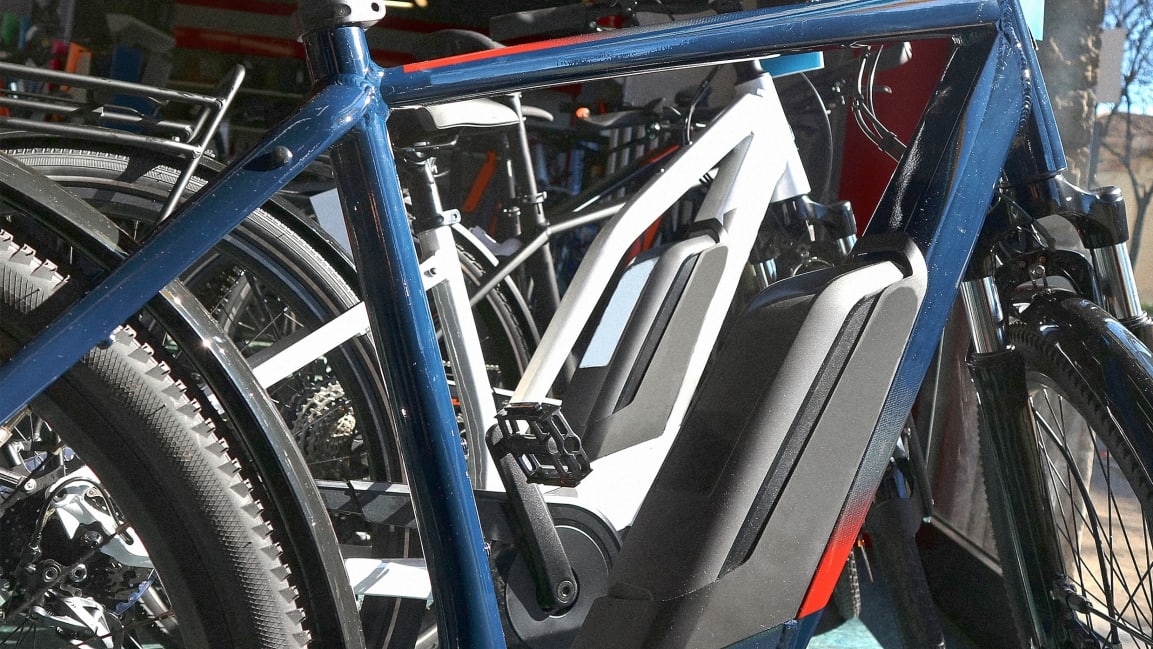The U.S. e-bike industry wants to do something about all those e-bike batteries
Getting people to swap their short car trips for electric bike rides could drastically reduce transportation emissions. But widespread e-bike use poses another downside for the environment: What to do with all the lithium-ion batteries that eventually will need to be replaced.
E-bike battery recycling programs are common in Europe, where e-bike use has been more popular, but in the U.S., the infrastructure is lacking. In 2022, though, that will change, with the launch of an industry-wide electric bicycle battery recycling program, a joint effort from PeopleForBikes, a bicycle trade association and advocacy organization, and Call2Recycle, a battery recycling nonprofit—and one both organizations say is a first for uniting a transportation sector under one battery recycling solution.
Analysts estimate that more than 12 million electric bikes will be sold in the U.S. this decade. That’s a good thing for reducing carbon emissions—a study conducted in Portland found that increasing e-bike use there by 15% could reduce total transportation CO2 emissions by 12%—but could pose some other concerns. E-bike batteries last between three and seven years on average, and they are often treated as hazardous waste, making them hard to dispose of. Producing the batteries also requires mining raw materials like nickel, cobalt, and lithium, which comes with environmental and labor concerns.

The U.S. e-bike battery recycling program aims to address both those impacts by looking at the whole lifecycle of these vehicles and their batteries. “It’s fantastic to be able to get an e-bike on the road and [reduce emissions], but if you’re not paying attention to what happens to the batteries at end of life, basically you’re going to end up with piles and piles of batteries,” says Call2Recycle CEO Leo Raudys.
Right now, most recyclers can recover 75% to 80% of the materials from an e-bike battery, which means less raw materials need to be extracted. In the next 10 years, Raudys thinks it’ll be possible to get that figure over 95%. “Every ounce of material that we don’t have to mine from the Earth is much better for the planet,” he says. “We’re truly moving toward a circular approach.”
Beginning in February 2022, electric bicycle retailers will be invited to join the recycling program. Raudys says they’re targeting about 3,000 bike shops across the country to voluntarily sign up to be involved. From there, the employees and bike techs will be trained on how to safely collect and ship the batteries, and Call2Recycle and People for Bikes will spread the word to riders on how to know when their e-bike battery is at the end of its life, and where to go to remove and recycle it.
“The idea is to make the recycling of the battery as easy as buying the bike in the first place, Raudys says. “You use the locators, drop it off, and you’re done.” Behind the scenes, though, there’s more work: Bike shops will get the safety gear needed to handle the batteries, and the program has had to work with the Department of Transportation to get a special permit ensuring they can ship the batteries to the recyclers they’re working with. (Shipping, which will be done through UPS, is paid for by the program; bike companies will pay a fee into an industry-wide fund for the battery recycling). Along with the drop-off locations. at-home collection kits will be available later in 2022.
Fast Company , Read Full Story
(30)



